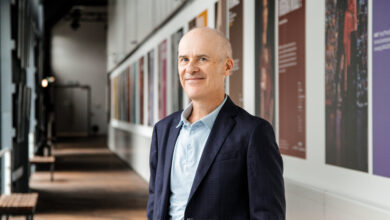New program aims to break down dementia stigma for Chinese Australians

A new program is aiming to deter stigma about dementia for Chinese Australians in hopes of reaching out to get an early diagnosis.
A team of researchers from the University of Sydney (USYD) have launched a simplified Chinese website Face Dementia to break down the social stigma, shame, and misconception of dementia, encouraging Chinese Australians to recognise dementia symptoms and reach out to get an early diagnosis.
Launched in Western Sydney, the free online and in-person program helps the community to start conversations with family about dementia-related concerns and ask their GP for an assessment.
Professor in Ageing and Health at USYD and researcher Lee-Fay Low said Chinese Australians living with dementia were often reluctant to seek support because of fear of stigma and common misconceptions.
"We know that people from diverse cultural backgrounds, including Chinese Australians, delay seeking help for dementia symptoms," Professor Low said.
"Our research with the Chinese Australian community shows there is poor understanding that dementia is a brain disease. Rather, symptoms of dementia are often incorrectly attributed to being a normal part of old age or mental illness, rather than a health problem where you can seek treatments and support.
"While we don’t yet have a cure for dementia, diagnosis is essential for all people with dementia as it helps them to access treatments, rehabilitation and therapies."
More than 400,000 Australians live with dementia, with 12,000 people living with dementia in Western Sydney.
That number is estimated to jump to 900,000 in the next 25 years, with the recent Intergenerational Report estimating Australia's older population to triple.
USYD Chinese campaign officer Cedric Cheng said Face Dementia promotes new terms for the word 'dementia' in Chinese by updating previously common terms for dementia, which "deepens" stigma.
"Traditionally, dementia has been mistakenly called ‘老年痴呆症 (Simplified Chinese) / 老人癡呆症 (Traditional Chinese), ‘lǎo nián chī dāi zhèng’ in Mandarin or ‘lou yen qi ngoi jing’ in Cantonese’, which means ‘Old People’s Delusional and Dummy Disease’. We’d like to change that because that phrase deepens the stigma.
"The phrase implies dementia is only associated with the elderly and has negative connotations such as having decision-making and memory issues.
"This old terminology is not accurate and could have contributed to the unwillingness of Chinese Australians to ask for help."
Mr Cheng said new terms such as 'brain degeneration' and 'cognitive impairment' were used to encourage the community to view dementia as a health concern they should not be ashamed of.
"We want to raise awareness and encourage Chinese Australians in Western Sydney to ‘Face Dementia’ rather than ignore the signs," he said.
"Our expert team has developed resources, including a website in Simplified Chinese and a checklist to help people with concerns identify changes and talk about this with their doctors."
Dr Lina Lee, a geriatrician based in Blacktown Hospital, said a timely diagnosis – regardless of age, cultural background or disease progression – allows patients and their families to adjust, plan ahead, and make lifestyle changes.
"Some people don’t think it’s important to discuss their thinking problems with their GP because they see this as normal for older people," Dr Lee said.
"As their symptoms worsen, they might be worried about stigma.
"But dementia is a health problem – it is not a normal part of aging, and a timely diagnosis can provide access to treatment to slow progression and support to continue living well."
Dr Lee and the research team are also running a simultaneous practice improvement program in General Practices in Western Sydney to improve the timely diagnosis of dementia.
Email: [email protected]






How effective is the new program in reducing dementia stigma among Chinese Australians, and what methods does it employ? Regard Telkom University